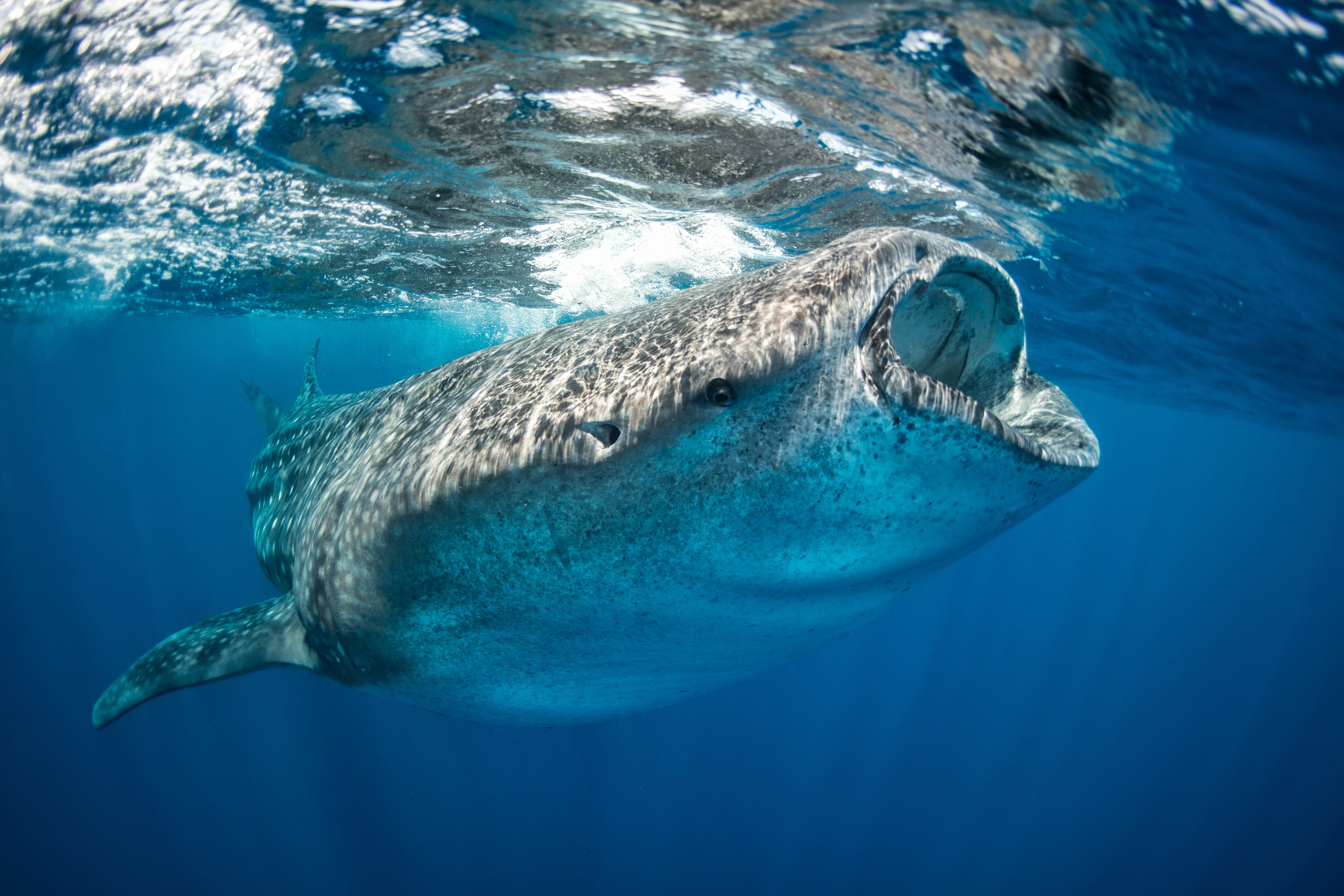Deadly ship strikes on endangered whale sharks could be causing fall in numbers, research finds
Other marine “megafauna” such as dolphins, whales, porpoises and sea turtles are also at risk of being hit

Your support helps us to tell the story
From reproductive rights to climate change to Big Tech, The Independent is on the ground when the story is developing. Whether it's investigating the financials of Elon Musk's pro-Trump PAC or producing our latest documentary, 'The A Word', which shines a light on the American women fighting for reproductive rights, we know how important it is to parse out the facts from the messaging.
At such a critical moment in US history, we need reporters on the ground. Your donation allows us to keep sending journalists to speak to both sides of the story.
The Independent is trusted by Americans across the entire political spectrum. And unlike many other quality news outlets, we choose not to lock Americans out of our reporting and analysis with paywalls. We believe quality journalism should be available to everyone, paid for by those who can afford it.
Your support makes all the difference.Deadly ship strikes on whale sharks could be responsible for a fall in the population of the endangered species, a new study has found.
The authors of the report published on Monday in the Proceedings of the National Academy of Sciences journal found the movements of whale sharks often overlap with those of large ships in both location and time, which could explain why numbers of the world’s largest fish are falling.
It is not only whale sharks that are at risk, with other marine “megafauna” such as dolphins, whales, porpoises and sea turtles also likely affected by ship strikes, according to the study.
Whale sharks are known to travel large distances to find enough food to sustain their large size - they weigh around 11 tons and are around 40 feet long, according to the WWF.
The authors said data on fatal collisions between ships and endangered species was lacking so, in an attempt to rectify that, the team analysed the movements of 348 sharks and ships bigger than 300 tons.
They found that sharks routinely crossed busy shipping routes, spent almost half of their time in surface waters at similar depths as vessels and used space that overlapped with ships.
The collision risk estimates corresponded with regional reports of shark deaths from ship strikes, and the last locations of likely dead sharks carrying tracking tags that ceased transmitting coincided with busy routes.
Taken together, the findings indicate that undetected or unrecorded ship strikes may be responsible for a substantial proportion of whale shark deaths, potentially explaining population decline despite protection from international trade and low fishing-induced mortality.
The report found collision risk hotspots spanned all major oceans but were concentrated in gulf regions.
The authors said the findings highlighted the need for collision monitoring, vessel speed regulation, and localised conservation measures to reduce the threat of lethal ship strikes to surface-dwelling marine life.
In the meantime, global vessel traffic is increasing alongside world economic growth, with more than 80 per cent of goods by volume now transported by sea, the report noted.
The report was authored by Freya Womersley, who is based at the Marine Biological Association of the United Kingdom in Plymouth, and colleagues from around the world including Portugal, New Zealand and Saudi Arabia.




Join our commenting forum
Join thought-provoking conversations, follow other Independent readers and see their replies
Comments